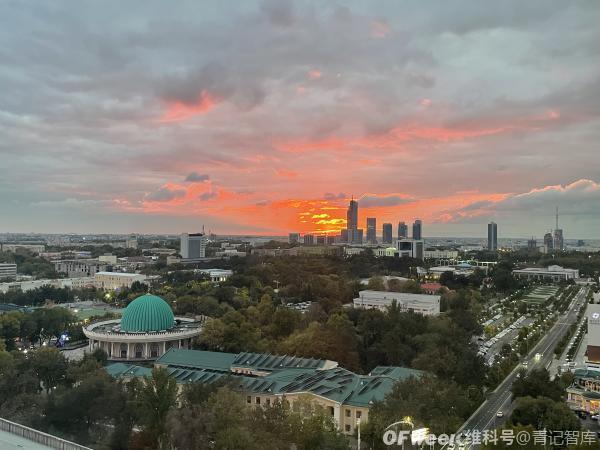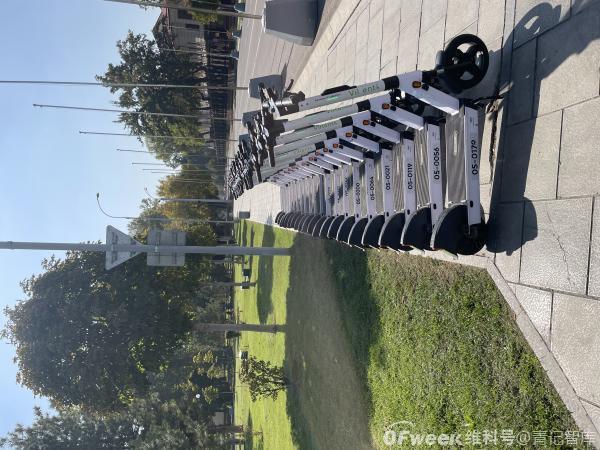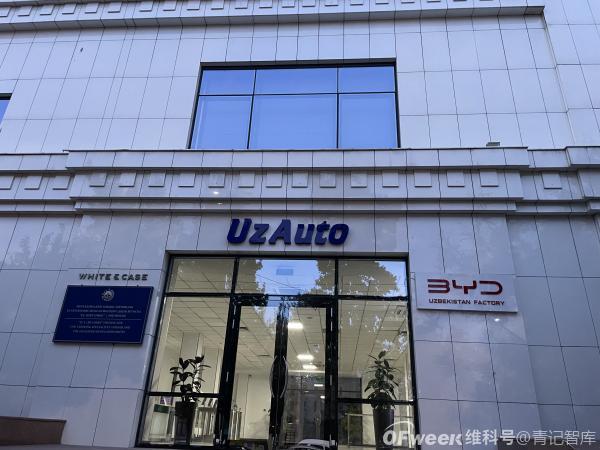Chinese new energy vehicle companies are flooding into this Central Asian country
![]() 07/08 2024
07/08 2024
![]() 623
623
Qingdao has taken on a new identity.
On July 4, the 24th Meeting of the Council of Heads of State of the Shanghai Cooperation Organization (SCO) was held in Astana, Kazakhstan. The leaders of the member states signed and issued the "Astana Declaration of the Council of Heads of State of the Shanghai Cooperation Organization." The declaration mentioned that "member states believe that declaring Qingdao, People's Republic of China, as the SCO's Tourism and Cultural Capital from 2024 to 2025 is conducive to tapping the potential of tourism cooperation in the region and further strengthening cultural cooperation."
On the same day, Chinese President Xi Jinping delivered an important speech at the SCO+ Astana Summit, stating that "the Green Development Forum and Women's Forum will be hosted in Qingdao, the SCO's Tourism and Cultural Capital, and all parties are welcome to actively participate."
This means that the country has once again entrusted Qingdao with another important task.
In international exchanges, tourism and culture are valued for their subtle influence and driving role. Through personal experience and participation, people from different countries and regions can better understand each other's cultures, thereby establishing more friendly and mutually trusting relationships.
In particular, SCO countries have nearly 150 world natural and historical cultural heritages, as well as a population accounting for more than 40% of the global population, providing infinite possibilities for the development of cultural tourism.
For Qingdao, this is both an opportunity and a challenge.
Last October, I and my friends happened to visit Uzbekistan, and we had some observations on mutual tourism and cultural exchanges, as well as perspectives on Chinese enterprises going overseas.

1
Among the SCO countries, apart from the two major powers of Russia and India, Kazakhstan and Uzbekistan are the main countries that are relatively secularized and have relatively good economic development. Last year, the top leaders of Shandong and Shaanxi provinces led delegations to visit Central Asian countries, generally choosing these two countries, plus Kyrgyzstan.
It can be said that there is a great space for tourism and cultural exchanges between these countries and China.
On the one hand, both countries are rich in religious and humanistic resources and have been deeply influenced by China historically.
Especially Uzbekistan, as a necessary stop on the Silk Road, has always had close exchanges with China. Many of the Zhaowu Nine Surnames during the Tang Dynasty were related to this place, which is also a testament to the influence of the prosperous Tang Dynasty.
A museum in Samarkand still preserves two murals excavated during the Soviet era, one depicting the Tang Gaozong hunting leopards, and the other depicting Wu Zetian rowing a boat.
This relatively remote museum is one of the most popular tourist attractions for Chinese tourists.
On the other hand, both countries are relatively secularized, have a good foundation for economic development, and have close interactions between their people.
Both countries also offer visa-free entry to Chinese tourists, greatly facilitating personnel exchanges between them.
In 2023, the number of tourists from China to Kazakhstan increased significantly, reaching 367,000 person-times. At the same time, 311,000 Kazakhstani tourists visited China, doubling from 2022.
2
However, neither of these two countries has direct flights to Qingdao.
In fact, on the whole, Qingdao does not have an advantage in developing international routes to SCO countries.
Currently, Qingdao has only opened two SCO-related routes to Kathmandu, the capital of Nepal, and Moscow. Especially in 2023, Xi'an, Chengdu, and other places opened direct flights to Tashkent, Uzbekistan, but Qingdao has not opened transfer services.
At the business forum of the China-Central Asia Five Countries Leaders' Summit held on May 17 last year, Qingdao Airport Group signed a strategic cooperation agreement with Samarkand International Airport. Both parties will accelerate the construction of hub cooperation, establish communication and coordination mechanisms, and work with airlines to assist government departments in expediting the relevant procedures for the Qingdao-Samarkand SCO route, striving to open it as soon as possible.
In fact, apart from direct flights, Qingdao could at least start with transfer services, such as through collaboration with domestic hub cities like Xi'an, Urumqi, and Kashgar, to reach more countries in Central Asia and along the Belt and Road.
Only when the most basic transportation convenience, such as direct flights and transfer services, is improved, can Qingdao's role as the SCO's Tourism and Cultural Capital be maximized.
For example, last March, Long Dragon Airlines resumed the direct route between Chengdu and Tashkent. There were significantly more tour groups and individuals from Chengdu visiting Uzbekistani tourist attractions.
3
Of course, the foundation of tourism and cultural exchanges is actually industrial cooperation.
Among SCO countries, Kazakhstan and Uzbekistan are countries with relatively guaranteed marketization and rule of law, as well as relatively large populations and market potential.
Tashkent, the capital of Uzbekistan, is an interesting city. With a population of only over 2.7 million, it is already the largest city in Central Asia, and its mobile internet economy is also very developed. Shared power banks, shared electric scooters, etc., are available, and the taxi app yandex is very convenient, equivalent to Russia's Google. There are also food delivery riders, but most of them ride bicycles.

Moreover, there are many young people on the streets of Tashkent, making it appear very vibrant. Local wages are not high, but consumption feels similar to that in China.
A reasonable guess is that some of the first people to become wealthy in Uzbekistan have concentrated in Tashkent, especially sending their children there.
For example, the Westminster International School, which cooperates with the UK, is located near the first KFC in the country. When it first opened, it was said to be very popular.
Now, Uzbekistan has also become a key destination for Chinese enterprises to expand their layout due to its relatively good economic and market potential, especially its emphasis on green energy.
Upon first arriving in Tashkent, one's eyes are filled with Chinese elements. Across the street from the newly opened InterContinental Hotel in Tashkent is a newly opened BYD flagship store. The buses are Yutong new energy vehicles, and there are advertisements for Honor phones in the subway. Huawei also held a digital energy conference at that time.

Nowadays, Chinese new energy vehicles can be seen everywhere on the streets of Tashkent, adding diversity to the original Chevrolet monopoly.
BYD and Uzbekistan's national automaker (Uz Auto) jointly established a company to build a local factory for the production of new energy vehicles.

On June 27 this year, President Shavkat Mirziyoyev of the Republic of Uzbekistan visited BYD's Uzbekistan factory and witnessed the official offline of the first batch of mass-produced new energy vehicles from BYD's Uzbekistan factory - the Song PLUS DM-i Champion Edition. In addition, BYD signed a green transportation cooperation initiative with the Uzbekistani government, aiming to jointly promote sustainable modes of transportation.
China National Heavy Duty Truck Group, a state-owned enterprise from Shandong Province, has also invested in building a factory in Uzbekistan.
On September 6 last year, the offline ceremony for the 3000th heavy-duty truck from the SinoTruk joint venture factory in Uzbekistan was held in Samarkand, Uzbekistan. Shandong Provincial Party Secretary Lin Wu and Samarkand Oblast Governor Turdimov attended the ceremony.
TGOOD, an enterprise from Qingdao, has plans to deploy charging piles in Tashkent.
Last September, TGOOD announced that Qingdao TGOOD New Energy Technology Co., Ltd., a wholly-owned subsidiary of its holding subsidiary Telling New Energy Co., Ltd., signed a memorandum of cooperation with the Tashkent City Government of the Republic of Uzbekistan. Both parties reached a consensus on establishing long-term cooperation in infrastructure, green energy, and transportation in Tashkent.
For Chinese enterprises, including those from Qingdao, Uzbekistan may be a key stop for their overseas expansion and industrial cooperation with SCO countries.






